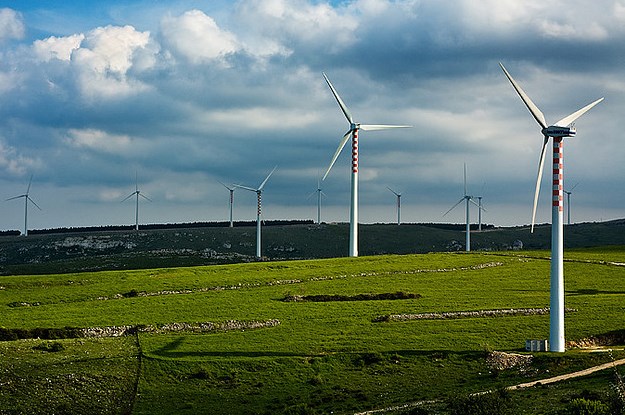When Paraguay joined ranks with a group of fellow Latin American countries at the United Nations climate talks this month, the media scarcely noticed. After all, its coverage of the UN’s ongoing negotiations to deal with global warming tend to focus on more “dramatic” developments—spats between major powers and the glacial pace of negotiations.
It’s hard to blame them. With few official negotiating days left before this year’s major UN climate conference in Paris, the odds that a meaningful agreement will be reached before the December deadline—let alone one with enough teeth to keep global average temperature increases below the critical 2 degree Celsius threshold—appear slim.
Outside the talks, Pope Francis’ encyclical calling for greater climate action, the recent G7 communique on phasing out fossil fuels this century and the growing fossil fuel divestment movement all represent crucial advances in the effort to combat climate change. Yet the UN negotiations often seem impervious to such positive developments, as countries continue to lock horns in a process that has yielded insufficient results for decades.
This is why it was significant when Paraguay joined Chile, Peru, Colombia, Costa Rica, Panama and Guatemala in the Independent Association of Latin American and Caribbean States (in Spanish, abbreviated AILAC), a group established in 2012 to strengthen member countries’ collective negotiating position at the UN talks.
AILAC has been dubbed the “third way” at the negotiations thanks to their role seeking points of agreement between developed countries and their developing counterparts. The group argues that developing countries have the most to gain by reducing their emissions and encouraging the rest of the world to do the same. They believe that a weak global climate regime, while perhaps less taxing in the short term, would leave them more vulnerable to worsening climate impacts in the future.
AILAC is therefore pushing for a legally binding agreement for all countries at the upcoming talks in Paris. The group is urging developed countries to be far more ambitious in setting their emissions reduction targets and more forthcoming in providing climate finance and technology transfer programs to help developing countries reduce their own emissions and build resilience to climate impacts.
At the core of AILAC’s position is their take on the thorny issue of Common but Differentiated Responsibilities and Respective Capabilities (CBDR+RC), a centerpiece of the 1992 UN Climate Change Convention that dictates how emission reductions should be tackled between developed and developing countries. AILAC maintains that the principle of CBDR+RC should apply to all countries, and should not been seen as an excuse for those in the developing world to refuse to take on emissions targets themselves.
This position has left AILAC at odds with some developing-world partners, including China and India and, closer to home, Brazil, Venezuela and Argentina, which assert that developed countries alone should have to take on mandatory emission cuts. Many in the developing world are wary of the universal and legally binding agreement that AILAC supports.
It is also unclear whether the region’s immediate economic ambitions are compatible with its long-term climate and environmental goals. Many AILAC countries, including Chile, Colombia and Peru, are also part of the Pacific Alliance trade group. The allure of commercial and investment opportunities from Asia and the tendency to rely on their rich bounty of natural resources might undermine the climate and environmental policies of Pacific Alliance members.
Still, Paraguay’s accession to the group suggests that AILAC’s positions are gaining traction. As the first non-founding member to sign up, Paraguay’s move sends an important signal that a pragmatic and non-ideological approach to negotiations may offer a way forward. Paraguay’s domestic efforts, including a new climate law and a national adaptation plan, set for completion this year, are also positive steps. The country’s expertise on reducing agriculture and livestock-related emissions should also strengthen AILAC’s hand.
This type of success has not come easily. It wasn’t until 2014, after more than a year of delays, that the group managed to form a technical support unit to advance its work, and although most member countries are developing domestic policy on climate change, effective implementation remains elusive. Colombia’s former environment minister, Manuel Rodríguez Becerra, argues that many climate policies in the region are more symbolic than real.
Nevertheless, AILAC offers hope that the entrenched positions of the developed and developing worlds can be brought closer together. The group’s continued growth (the Dominican Republic and Uruguay are also considering joining) will help it more boldly advance its goal of reaching an ambitious and legally binding climate agreement, according to Julio Cordano of Chile’s Ministry of Foreign Affairs.
Whatever the agreement to come out of Paris, it will not satisfy everyone. But the UN process cannot be left to fail. More nations must be committed to progress, regardless of divergent interests and differences of opinion. With Paraguay on board, an emboldened AILAC is in position to help bridge the gaps and, hopefully, make their third way a reality.








